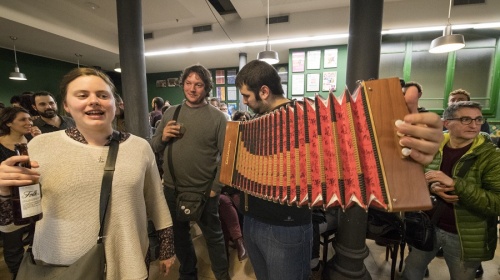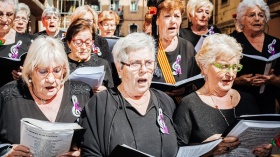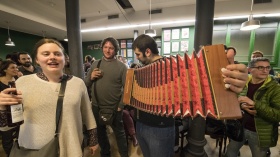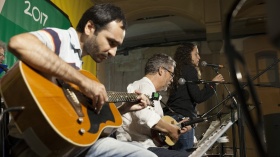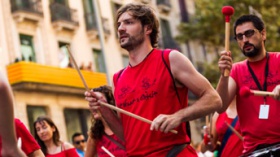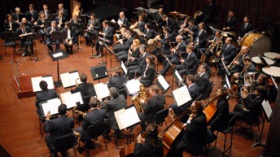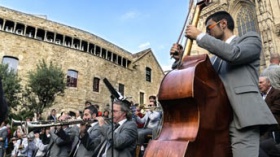Cançó improvisada
Lately, cançó improvisada, or improvised song, has really taken off. In fact we can begin to see that, as a phenomenon, this kind of talking in verse has increasingly more participants and experts in the Catalan-speaking lands.
It involves singing, but in a rather unusual way, improvising lyrics on the spot over a previously-known tune.
In many places where this art has been kept alive, the word glosa is used to describe the improvisation. It is also known as corrandes and the person who composes and sings the lyrics is the corrandista.
Although cançó improvisada can be considered a genre in its own right, there are regional variations which are classified into different tunes or melodies. In the Balearic Islands they speak of glosa; in Valencia, albaes; in the Ebro region, jotes; in Lleida, the Gypsies have cultivated garrotins; there are nyacres in Empordà; and corrandes are found fairly extensively around Catalonia. Special attention should be paid to the cançons de pandero, or tambourine songs, normally linked to the Majorales del Roser and which have awoken the interest of ethnographers and anthropologists who have begun to study them.
Glosadors and corrandistes meet in the shelter of parties, festive dinners, and gatherings of accordion or violin players. The get togethers can be spontaneous, but also, and increasingly often - prepared and announced. And the singers wind each other up so that the members of the audience enjoy themselves.
Some of the meetings are in the form of a contest: in the rounds the corrandistes battle each other in sing offs. Ingenuity and cheekiness when improvising the lyrics are the keys to success and a high score from the jury.
A host of associations have grown up around this activity, which set up leagues and competitions, and coordinate and publicise the events. This is true, for example, of the Cor de Carxofa.




